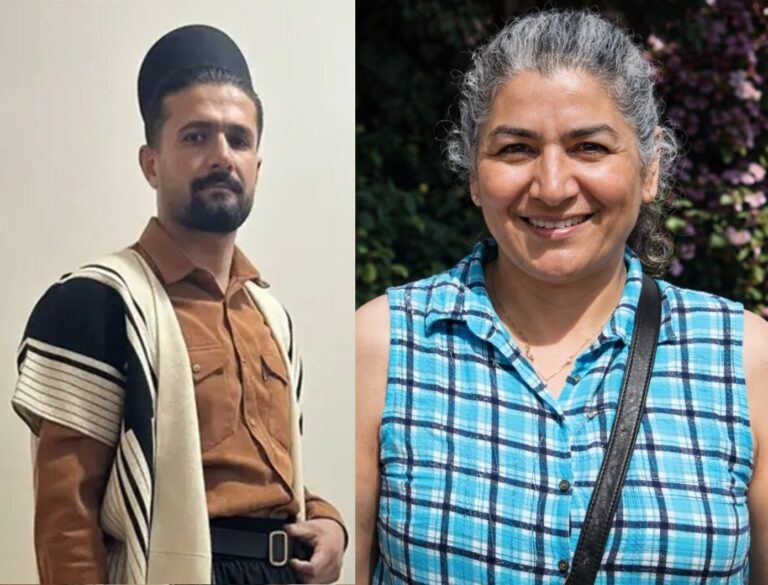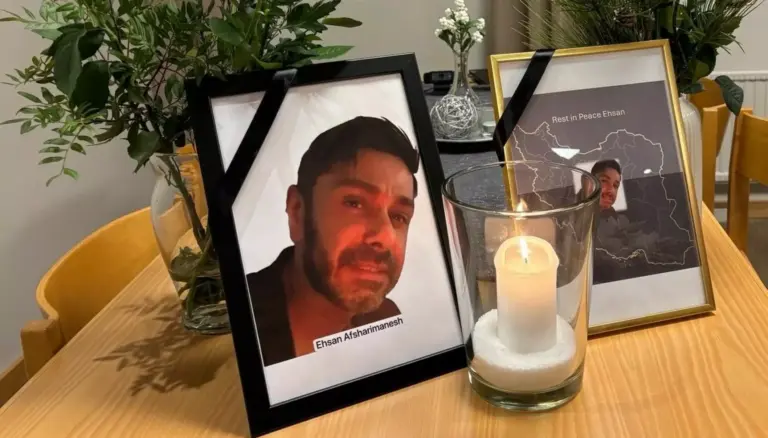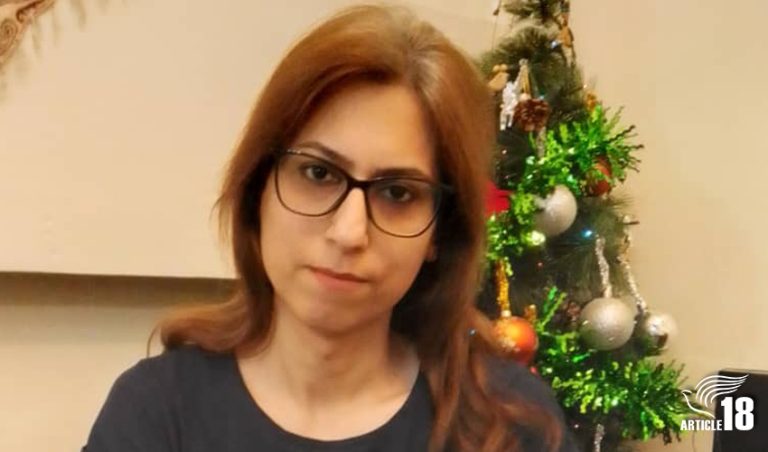
Javad Amini with wife Farzaneh.
An Iranian Christian convert detained by agents of the Islamic Revolutionary Guard Corps (IRGC) last month has been released on bail.
Javad Amini was arrested on 17 November and released on 27 November, the day after he and 11 other Christians from Nowshahr, north Iran, were due to appear in court to face charges of “propagating a religion contrary to Islam” and “collaborating with foreign governments”.
Article18 can now reveal that two other Christian converts – both women – who had been arrested alongside Javad and over 20 other Christians at Christmas 2023 were also detained on 17 November and held for 10 days.
The three Christians were each forced to submit 1 billion tomans for bail, equivalent to $15,000.
Article18’s sources had previously suggested that Javad’s uncle had been detained alongside him, but this was not the case. In fact, both Javad’s uncle and wife, Farzaneh, were present when their car was surrounded by the IRGC agents, but only Javad was detained; his wife and uncle were released after questioning.
However, Farzaneh later went home to discover her home ransacked, and minutes later received another unwelcome visit from the agents, who claimed they were looking for Javad’s phone and Bibles.
The agents later returned for a third visit and confiscated several Bibles and other Christian books, as well as Javad’s notebooks related to his study of Christian theology.
During her husband’s detention, Farzaneh was interrogated by both Ministry of Intelligence and IRGC agents, who subjected her to severe psychological pressure, using vulgar and offensive sexual language.
The trial on 26 November took place without Javad, but Article18 is still awaiting news of its outcome.
In the indictment summoning the 12 Christians to court, the prosecutor, Mohammad Reza-Ebrahimi, had noted that the converts, although “Shia Muslims”, had “identified themselves as Christians during their defence … and this is supported by the messages exchanged in their phones,” as well as through the “Gospels and other Christian literature found in their possession.”
The prosecutor concluded that the 12 had “set up groups to teach the Christian religion” and were therefore guilty of a crime.
The Islamic Republic of Iran claims to protect the rights of Christians as one of three recognised religious minorities, but converts are not treated as Christians and continue to be arrested on account of their religious identity, as clearly shown in this indictment.
Last month, the UN General Assembly called on Iran to “cease monitoring individuals on account of their religious identity, to release all religious practitioners imprisoned for their membership in or activities on behalf of a minority religious group … and to ensure that everyone has the right to freedom of thought, conscience and religion or belief, including the freedom to have, to change or to adopt a religion or belief of their choice, in accordance with its obligations under the International Covenant on Civil and Political Rights”, which Iran has ratified.
The charges against the Christians have been brought under the amended Article 500 of the penal code, under which several Christians have already received long prison sentences, and which has been labelled a “full-on attack on religious freedom”.
Three of the Christians, Jahangir Alikhani, Hamed Malamiri, and Gholam Eshaghi, were also recently re-arrested by IRGC agents and detained for nearly two months, before their release on bail on the very same day that Javad and the two women were detained.
Jahangir, Hamed and Gholam were reportedly subjected to physical as well as psychological torture during prolonged interrogations, and asked to write letters renouncing their Christian faith and expressing remorse for their actions in order to secure their release.



0 Comments